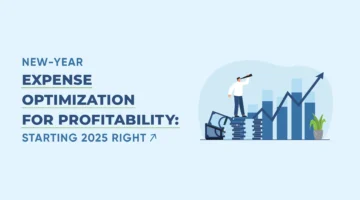The Four Deadly Sins of New Businesses
As a business owner, whether you are 5 years in or just starting out, you understand the immense time and effort that it takes to run your own company. You have created business models, acquired the necessary capital, and put together a team. You have consulted friends, family, and other professionals to make sure your plans were solid and profitable.
Every business starts out with that same vision, passion, and desire to succeed, so why is it that some companies make it, and some do not? To put a number around the “some do, some don’t” statement, about 80% of companies fail within the first 18 months, and of those that make it to the second year, around 50% make it to their 5th.
Through our work with businesses in every industry out there, NOW CFO has seen companies at all stages of business growth and decline. Through our years of service, we have noticed four consistencies in the companies that are struggling to stay afloat. Below, we have detailed these 4 common mistakes that businesses make, and the solutions that will drive you towards success.
1: No Cash Flow Planning
In simple terms, cash flow is the movement of money in and out of a business. Positive cash flow means there is more money coming into the business than going out, and negative cash flow means there is more going out than coming in.
It is important to be planning out and analyzing your cash flow and making regular adjustments to the estimates based on expected payment dates, actual costs, and any other income or costs that you encounter. Here is how improper cash flow planning can hurt you – when sales go up, so do the costs of operations (new employees, more inventory, etc.), but that does not necessarily mean collections increase right away.
Without planning for potential stalls in collections or other challenges to income, businesses can become casualties of the greatest potential threat to cash flow: growth. 70% of businesses that go under are profitable when they close the doors – they just do not have enough cash coming in to cover their operating costs.
In a study of 2,200 small businesses, 68% reported that they did not perform any sort of cash flow analysis or planning. Of those who plan, but only once per year, there is a 36% survival rate after 5 years. Increase the frequency of planning to once a month, and the survival percentage rockets to 80%.
Solution: Create a cash flow projection. Estimate the actual costs of running your business for the next year and make regular adjustments. Higher visibility will give you a better idea of where you stand and what adjustments need to be made. If you do not understand how the finances and accounting of your company work, find someone who does because not understanding the amount of money you have is one of the quickest ways to make a crucial mistake in running your business.
2: Not Monitoring Key Metrics
“You can’t manage what you don’t measure.” This is an overused adage, but its over-use speaks of its critical importance in running a successful operation. Key performance indicators (KPIs) are “measurements a business uses to track whether it has accomplished its goals and objectives.” KPIs can help you manage all aspects of your business, but if you are not measuring the correct data or measuring the data correctly, these metrics are of little value.
A study performed by US Bank showed that 78% of businesses that fail do so due to lack of a developed business plan. KPIs allow you to evaluate and restructure your plan to assist in your path to success and avoid becoming a victim of this statistic.
A report published by the Commonwealth Broadcasters Association in the UK stated that the most meaningful KPIs should be 6 things: Strategic, Holistic, Relevant, Timely, Accurate, and Consistent. These indicators should allow a business owner to report past outcomes, find areas of improvement and identify the resources needed to make the necessary changes, and evaluate the effectiveness of business processes.
Without this visibility, it is impossible for a business owner to implement the changes to the business model and trajectory that are necessary to keep it on the path to success.
Being able to establish and interpret KPIs is instrumental in making informed business decisions. Just as important is setting measurable, attainable goals that can be monitored using the KPIs. As a business consultant and author, Bernard Marr reminds us, “navigation instruments are only useful if we know where we want to go.:
Solution: Dashboards- A dashboard is a centralized, visual view of the KPIs you are measuring. While there are plenty of computer systems out there that will create these for you, it is often best to have an individual build a unique dashboard for your business. This allows for a custom set of metrics that are best-suited for your success.
3: Lack of Internal Checks and Balances
Who is handling your money? Is it just one person, or are there multiple hands in the pot? Is anyone checking to make sure the finances are correct? As you structure your Accounting Department and its regulations, keep this in mind – a PWC study indicated that at least 50% of all fraud experienced by companies is perpetrated by someone on the inside.
On average, the amount lost due to fraud is $140,000, though around 20% of cases reported upwards of 1 million in losses. It is estimated that the average company loses about 5% of their income due to fraud–that is 3.5 TRILLION dollars annually.
Here are some other shocking statistics – It takes about 18 months for fraud to be detected. 77% of those who commit fraud work in Accounting, Sales, Upper Management, Customer Service, and Purchasing. Background checks are a great tool; however, they are not highly effective at keeping out fraudsters – around 87% of those who commit fraud had never been charged or convicted of an offense relating to fraud.12
Solution: Establish effective checks and balances- Do not let these statistics scare you into thinking you need to do everything yourself – establishing effective internal checks and balances across all departments can solve most of this problem for you. Fraud can happen anywhere, and while internal controls do not eliminate the possibility, there is a notable correlation between companies with 16 key checks and balances and a decrease in duration and cost of internal fraud schemes.
4: Employee Turnover
Consider this scenario: a Sales Rep for your company announces that she’ll be moving out of state and gives her 2 weeks’ notice. The recruiting wheels are put into motion in your company, as are the HR functions associated with an employee’s exit and the impending hire. Aside from the headache, what is the hardest cost to a business owner?
Estimates show that the cost of 1 employee leaving can cost a company between 90% – 200% of that person’s annual salary. If you think that sounds too steep, consider the multiple factors that are involved in this process – HR and recruiting time, decrease in sales productivity, lost clients, orientation for new hire, decrease in team productivity as they work with and train the new hire, and payout of accrued PTO, to name a few. One study found that the turnover costs account for 12% of pre-tax income for the average company.
Employee turnover is especially harmful to small businesses in which job functions don’t overlap. When one person leaves, they often take with them specific functions or knowledge that were crucial in running the company, leaving a void in processes that takes more effort to fill. Without as many HR and training resources as larger companies, it can take much longer to find, hire, and train the right people to fill the position.
Solution: Diversify- Make sure there is more than one person in your company who knows how to complete necessary functions. Another solution is to outsource. By outsourcing, you ensure continuity of coverage and remove some of the financial burdens of turnover from your shoulders.
How NOW CFO Can Help
NOW CFO’s outsourced financial experts will make sure that your new business starts off on the right track from the very beginning. Having an outsourced CFO or Controller will ensure that you have the right financial processes put into place to be successful and prepared by having the appropriate financial forecasts and models in place.
Get Your Free Consultation
Gain Financial Visibility Into Your Business
We provide outsourced, fractional, and temporary CFO, Controller, and operational Accounting services that suit the needs of your business.
- Hourly Rates
- No Hidden Fees
- No Long Term Requirements
NOW CFO provides the highest level of expertise in finance and operational accounting to accelerate results and achieve strategic objectives for sustainable growth and success.
After completing the form, a NOW CFO Account Executive will reach out and learn more about your needs so that we can pair you with the right Partner.



